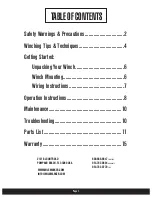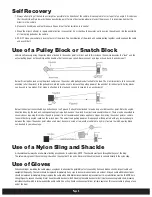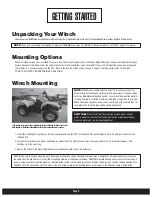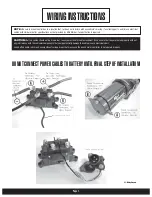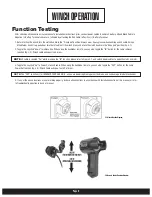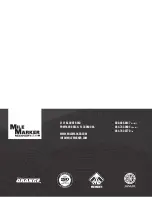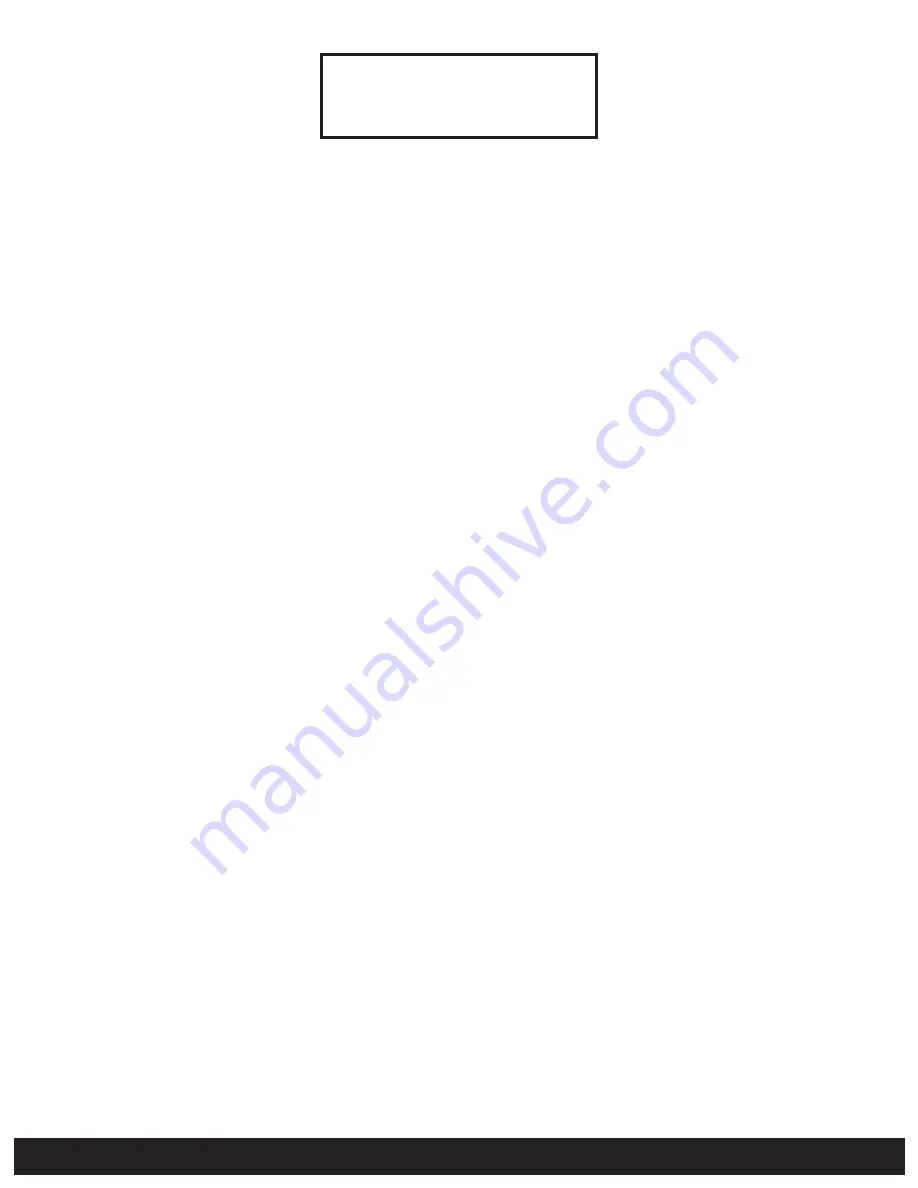
PRECAUTIONS
1. Keeps hands and body away from Fairlead (cable intake slot) when operating.
2. Secure vehicle in position before using winch.
3. Do not exceed winch load weight capacity (see Winch Specifications).
4. Be certain winch is properly bolted to a structure (or vehicle) that can hold the winch load.
5. Always use proper couplings when connecting winch cable hook to load.
6. Do not lift items vertically. The winch was designed for horizontal use only.
7. Do not overload the winch (see Model Specifications). It will do the job better at the load it was intended.
8. Do not use inappropriate attachments to extend the length of the winch cable.
9. NEVER LIFT PEOPLE OR HOIST LOADS OVER PEOPLE.
10. Never come in between the winch and the load when operating.
11. Do not apply load to winch when cable is fully extended. Keep at least 5 full turns of cable on the drum.
12. After moving an item with the winch, secure the item. Do not rely on the winch to hold it for an extended period.
13. Examine winch before using. Components may be affected by exposure to everyday weathering, chemicals, salts, and rust.
14. Never fully extend cable while under load. Keep 5 COMPLETE TURNS of cable around the winch drum.
15. When loading a boat into a trailer without reel or side hull rollers, make sure the trailer is submerged in the water when the boat is loaded by the
winch. Attempting to drag the boat on to the trailer while on land can cause winch failure and possible injury.
16. Never operate winch if cable shows any signs of weakening, is knotted or kinked.
17. Winch does not have a locking mechanism. Secure load after moving.
18. Do not cross over or under the cable while it is in process of loading.
19. Do not move vehicle with cable extended and attached to load to pull it. The cable could snap.
20. Apply blocks (such as a wheel choke) to vehicle when parked on an incline.
21. Re-spool cable properly.
Page 3


